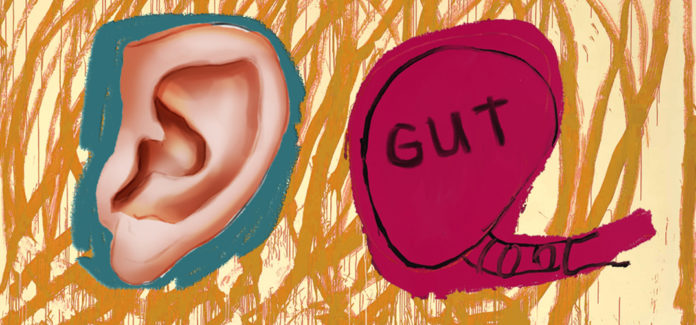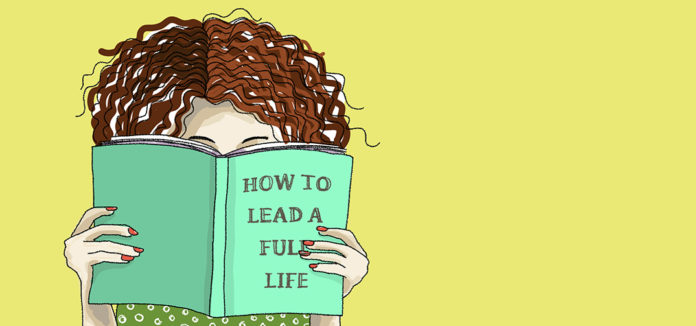Dr. Devgan is a top-ranked, board-certified plastic surgeon and renowned beauty expert. In addition to her surgical practice, Dr. Devgan is a medical expert for ABC News, the CEO of the luxury skin care brand Dr. Devgan Scientific Beauty, and has her own podcast, Beauty Bosses, which brings together fellow entrepreneurs and industry trailblazers to chat about their career and what has been their secret to success thus far.
Why Reading Is So Good For You
People increasingly tell me they have a hard time starting a book, let alone finishing one. Reading a book takes time and concentration-two rarities of daily experience.
There are so many competing demands on attention. Who has the time to actually sit down and lose oneself in a book? In our busy lives, quick reads like news updates and snackable articles may be the only reading we have the energy and bandwidth for but don’t let this mindset get between you and a book during vacation. A great book can make a holiday even more memorable. You will always remember where you were when you read it. Take a favorite from the past or a new one someone you trust recommends or one that takes place where you are going.
Reading opens us up to the experiences of others and provides an escape from the echo chambers of our own minds. Studies suggest it might even build empathy by awakening awareness, broadening perspective, and expanding imagination. As author L.R Knost observed, “Humanly speaking, there is no greater teacher, no greater therapist, no greater healer of the soul, than a well-stocked library.”
A patient stopped reading fiction somewhere between her first and second child. Life got in the way. Scrolling replaced deep reading. She found her way back to novels after a friend insisted she take Anthony Doerr’s All the Light You Cannot See on a trip to France. While sitting in a cafe, instead of picking up her phone, she would reach for her book. She said it enhanced her experience immeasurably and shielded her from tumbling down the rabbit hole of pointless scrolling, commenting, and liking. The vacation is long over but the joy of reading lingers. After putting the kids to bed, instead of turning on the television, she makes a habit of reading instead. She has found that reading a few pages is the perfect vacation for a restless mind.
I wish you all the best,
Dr. Samantha Boardman
Don’t Let Stress Interfere With Gut Feelings
Listening to your gut when you’re anxious is like going to the supermarket on an empty stomach. Your judgment is clouded so you end up buying stuff you don’t need. The last time I made that mistake, extra-large bags of potato chips, wheels of cheese, and sugar-packed cereals I had sworn off for life made their way into my shopping cart. Being hungry impairs the ability to make healthy choices.
Similarly, anxiety can impair the ability to make intuitive or “gut” decisions. While there is no agreed-upon definition in psychology, intuition is generally thought of as resulting from a fast, unconscious, and automatic process that leads to knowing something without knowing how you actually know it. Intuition can be a valuable tool, especially if you have expertise in the situation at hand. For example, intuitive decision-making athletes make faster and better decisions than their more analytic counterparts. Related research shows that intuition is enhanced in people when they are in a good mood. But when you are anxious, the opposite is true.
There are a number of possible reasons why an anxious state of mind interferes with intuition. A lack of self-confidence, a fear of failure, a pessimistic outlook, a narrow perspective, and a tendency to pay attention to irrelevant stimuli contribute to why it is hard to see the forest from the trees when you are filled with fear or uncertainty.
Intuition can be an excellent guide but only in the right context and when you are thinking clearly. As one researcher puts it:
“The primary takeaway is: intuition is like nitroglycerine — it is best used only in certain circumstances.”
This article originally appeared in the September 2018 issue of Marie Claire.
I wish you all the best,
Dr. Samantha Boardman
You Aren’t The Only One With Duck Syndrome
A duck appears to glide calmly across the water, while beneath the surface it’s an entirely different picture: The duck is frantically paddling its little legs to stay afloat and keep up. Watching everyone else gliding effortlessly through life—achieving professional success, thriving socially, and looking fabulous—is making you feel worse about your own difficulties.
I had a patient who had a picture-perfect life from the outside. At our first meeting, she showed me the holiday card she sent to everyone. It was a collage of “pinch me now” photos: her three kids frolicking in a turquoise ocean; her and her husband embracing in front of the Eiffel Tower; a family ski trip; her eldest child in cap and gown at his graduation. She showed the card to me to convey the disconnect between the facade she worked so hard to maintain and her internal unhappiness. She was too embarrassed to speak to her friends about what was going on, fearing they would forever think differently of her. From her perspective, their lives were perfect. She thought she was the only one working overtime to fake it. As the weeks passed and she opened up to a few friends, she learned that they too were going through some stuff on their own. Two were in therapy for depression. Another was in rehab but told everyone she was visiting a sick family member. Another was in couples therapy. The feverish effort to maintain the appearance of effortless happiness had made her feel even worse. Knowing she was not alone was an important part of her recovery.
Research shows that we systematically overestimate how happy other people are, even people we know well. This is because we see other people only in social settings or in carefully crafted worlds on social media. Their private emotional lives are unobservable to us. We have no idea what life is really like for them. As a result, our perception of their lives is based on an illusion. The consequences of the illusion, however, are real. Making assumptions about others’ happiness encourages us to hide our own negative emotional experiences, which leads to feelings of loneliness, unhappiness, and less satisfaction with life in general.
This article originally appeared in the May 2019 issue of Marie Claire.
I wish you all the best,
Dr. Samantha Boardman
Is There Such a Thing as Too Much Self-Care?
During an airline safety demonstration, the flight attendant instructs you to put on your oxygen mask before assisting others if the cabin loses pressure. They tell you this for good reason. If you run out of oxygen, you will lose consciousness and won’t be able to assist anyone else. It is a life-or-death situation. But mental health is more nuanced. It does not exist in such absolute “either-or” terms. Of course, it is important to take care of yourself—to put on the proverbial oxygen mask—but it doesn’t mean you should retreat into yourself and disengage from the world around you. Here’s the thing: You can take care of yourself and be there for others at the same time.
I had a patient, let’s call her S, who became so preoccupied with self-care that it began to undermine her well-being. She withdrew from her book club so she could read self-help books on her own. The group didn’t always choose books she liked, so she felt justified in her decisions. Making herself a priority gave her license to decline invitations that weren’t convenient or to her liking. She didn’t attend a friend’s birthday dinner because it wasn’t at a vegan restaurant. She privileged “me time” over family time. When her sister came to town for a visit, she barely made time to see her.
It was self-care on steroids. S was getting lots of sleep, eating a healthy diet, meeting with a life coach on a regular basis, meditating 30 minutes a day, and getting plenty of exercise. But she was missing out on a crucial aspect of well-being: social connection. Instead of focusing exclusively on yourself when the going gets rough, remember to look up, look out, and, above all, connect with others.
It is well established that having a shoulder to lean on helps us get through a bad day, and studies show that social support is one of the best salves for stress. Less well-known are studies that show how providing a shoulder to lean on helps buffer against stress. In a University of California, Los Angeles, and Yale School of Medicine research article titled “Prosocial Behavior Helps Mitigate the Negative Effects of Stress in Everyday Life,” participants who engaged in other-focused behavior, such as holding open a door, asking someone if they needed help, and lending a hand, reported better moods and lower daily stress levels than those who didn’t. In sum, self-care is a good thing. Just don’t let it become the only thing.
This article originally appeared in the July 2019 issue of Marie Claire Magazine.
I wish you all the best,
Dr. Samantha Boardman
How to Cool Down in the Heat of the Moment
In the heat of the moment, one of the worst things to do is what people normally do–immerse themselves in their emotions and focus on their hurt. This response is like putting gasoline on a fire. It fuels the flame by keeping angry and aggressive thoughts front and center, making it more likely you will say something you later regret.
Psychological research offers a simple strategy to cool these hot emotions. When someone upsets you, try to pretend you are a fly on the wall and viewing the situation from a distance. This is known as “self-distancing.” The process of mentally stepping back from an experience and viewing it as separate from the self and through the eyes of an outside observer can help you stay in control.
In one study, college students were paired with a partner who, as part of the experiment, intentionally provoked and berated them for not following directions with comments like “Look this is the third time I have to say this! Can’t you follow directions?” in an impatient and obnoxious tone. The students who had been told to adopt a self-distanced perspective were less quick to anger and responded less aggressively than those who immersed themselves in their feelings.
When you are psychologically distanced from a situation, you gain perspective. The long line at the grocery store might feel a little less personal. You are more likely to consider the possibility that the driver who cut you off is late to pick up her child from daycare and not just a jerk or that a disagreeable colleague is having a tough time at home and not just lazy. Potentially explosive interactions with, friends, family, partners, and even strangers are less likely to explode when you picture the moment from afar. Channeling a fly provides greater distance and as a result, less drama.
This article originally appeared in the March 2019 issue of Marie Claire Magazine.
I wish you all the best,
Dr. Samantha Boardman







